SUMMARY
This is AI generated summarization, which may have errors. For context, always refer to the full article.
![[Just Saying] What we should know about past International Criminal Court decisions](https://www.rappler.com/tachyon/2021/06/icc-case-duts-drugs-wars-June-17-2021.jpg)
The report of international prosecutor Fatou Bensouda “that there is a reasonable basis to believe that the crime against humanity of murder was committed” in the conduct of President Duterte’s war on drugs, prompting her to finally ask the International Criminal Court to conduct a full investigation, is news in many parts of the world.
I am sure that, if ever it proceeds, President Duterte and all those named in the request for full investigation will be given due process. As President Duterte’s followers would say, “You have nothing to fear, if you have nothing to hide.”
President Duterte must welcome this full investigation not only for the sake of his own name but for the country. Because if he is truly innocent, he will be rightfully vindicated and the country’s tarnished reputation corrected. He should not evade the process utilizing technical grounds. The investigation is good for the country.
At this time however, it would be worthwhile to know some concepts in connection with the prosecution of international crimes such as systematic mass killings.
First, public incitement to commit genocide or systematic mass murder is a crime in international law. Incitement is communication. For example, in the Cambodia mass murder trials, the 1978 speech of the Khmer Rouge leader Polpot stating that “not one seed” of Vietnamese must exist in Cambodia was considered incitement enough to induce Polpot’s government authorities and followers to kill thousands of Cambodians with Vietnamese ethnicity.
Also, in the 1994 Rwanda mass killings, media people allied with the ruling Hutus uttered hate speeches against the Tutsis such as “exterminate the roaches” and, knowing that Tutsis were taller than Hutus, they euphemistically broadcasted “cut down the tall trees.” The Hutu dominated-government always played the “Tutsi card” to cause sufferings to Tutsis, leading to the mass killings of the latter. Provocation to induce the commission of killings were done either by hate speech referring expressly to killings or utilizing the play of words alluding to murdering the Tutsis. This is the reason why the Rwanda case is sometimes referred to as the “words-that-kill” case.
Second, as explained in the Rwanda case (citing the previous Akayesu case), the gist of incitement as a crime is the POTENTIAL to cause the killings. The point is to show that the speaker desired to create a state of mind on the part of his listeners to be so engaged to commit the killings and to think that the same is justified when done. That is the mens rea. “State of mind” is hard to prove, but credible positive answers to the following queries can be greatly helpful for the determination of guilt: Did the statements expressly mention killings or at least impliedly suggest killings? Were they flaunted or uttered publicly? Were they threatening? Were they repeated? Were they said with seriousness and/or anger? Were they deliberately spoken without any showing of subsequent remorse? Were there quantitative and qualitative outcomes – meaning the resulting number and manner of killings – within a period of time after the utterances? These are just some of the queries that can help the tribunal come up with a conviction. (See: Prosecutor vs. Nahimana, Barayawiza, Ngeze, Case No. ICTR 99-52-T International Criminal Court for Rwanda Chamber 1 December 3, 2003)
Third, inevitably, the long arm of the law will catch up with those who performed, ordered, aided, or inspired persons to commit crimes against humanity. In November 2018, Nuon Chea, 97, and Khieu Samphan, 87 were convicted by the Supreme Court of the Extraordinary Chambers in the Courts of Cambodia (ECCC) backed by the United Nations for systematic mass murder, torture, enslavement, and extermination of Cham Muslims and ethic Vietnamese in Cambodia during the murderous Polpot regime in the late 1970s.
Prosecutor Nicholas Koumjian was reported to have said that “the fact that these crimes happened 40 years ago in no way diminishes the impact of this verdict for those who were affected by the crimes, people whose parents were tortured and killed.”
Because they are crimes against humanity, the filing of cases for mass killing and especially genocide does not lapse or expire like a driver’s license. No matter how old a culprit gets, he can be charged and convicted.
Fourth, in the case of the 1994 mass killings of Tutsis in Rwanda, the International Criminal Court for Rwanda haled to trial both public and private individuals who were found to be complicit in the systematic killings encouraged by the Rwandan government.
Significantly, even people working in government media and in private media who, in large measure, through their words or other acts either defended, assisted, aided, or encouraged the extermination, and which increased the killings were included in the charge and convicted. The international court said:
“The nature of media is such that causation of killing and other acts of genocide will necessarily be effected by an immediately proximate cause in addition to the communication itself. This fact does not diminish the causation to be attributed to the media, or the criminal accountability of those responsible for the communication.”
Fifth, because of their pervasiveness, mass killings necessarily entail the cooperation of a number of individuals: the instigators, complicit media people (government and private), conniving private citizens, and actual perpetrators.
Sixth, significantly, one need not even necessarily bring cases of mass murders or violations of international law to an international court. The United States, for example, has the Aliens Tort Claims Act allowing foreigners to file cases in the United States for violation of international law or norms that are specific, universal, and obligatory. Surely committing systematic mass murder complies with those legal attributes. In 1996, some Rwandan citizens filed cases against Rwandan officials responsible for the killings of their relatives during the period of massacre. They were awarded by a US District Court the amount of $105 million dollars for compensatory damages.
Seventh, generally, before recourse to an international tribunal can be availed of, the aggrieved party must first exhaust all remedies in his particular country. But, as exceptions, no exhaustion is needed when domestic remedy is useless; when local remedies will just prolong the outcome of the case; and/or when there are financial impediments negating effective access to local remedies. I would also suggest, as an additional exception, waiver of jurisdiction by the state of the accused such that, if in the next administration, the executive department decides to waive Philippine jurisdiction in relation to a crime that sooner or later will be cognizable by the International Court of Justice, immediate and direct access to international court can be availed of.
There is a saying that justice must be done though the heavens fall. The case of a Philippine president as the subject of a request by an international prosecutor for full investigation for crimes against humanity is historic. Whether or not you are for it, let us all monitor this unprecedented development. – Rappler.com
Mel Sta Maria is dean of the Far Eastern University (FEU) Institute of Law. He teaches law at FEU and the Ateneo School of Law, hosts shows on both radio and Youtube, and has authored several books on law, politics, and current events.
Voices features opinions from readers of all backgrounds, persuasions, and ages; analyses from advocacy leaders and subject matter experts; and reflections and editorials from Rappler staff.
You may submit pieces for review to opinion@rappler.com.
Add a comment
How does this make you feel?
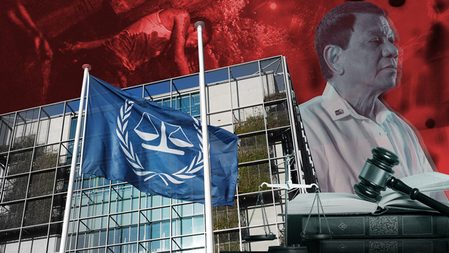
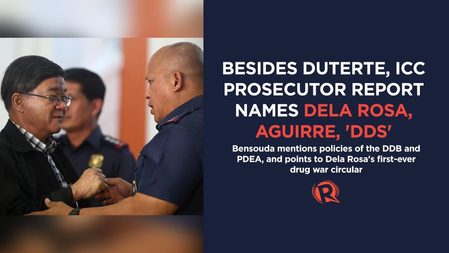



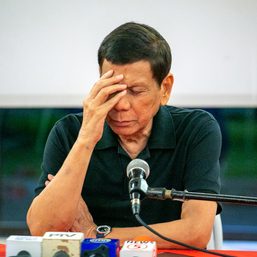


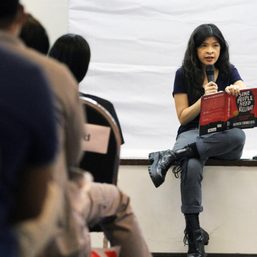

![[OPINION] ‘Some people need killing’](https://www.rappler.com/tachyon/2024/04/tl-some-people-need-killing-04172024.jpg?resize=257%2C257&crop_strategy=attention)


![[Judgment Call] Resisting mob mentality for warrantless arrests](https://www.rappler.com/tachyon/2024/04/judgement-call-mob-mentality.jpg?resize=257%2C257&crop=352px%2C0px%2C720px%2C720px)

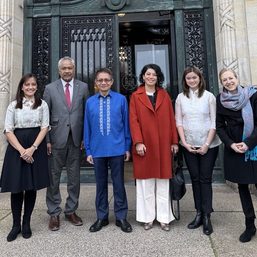
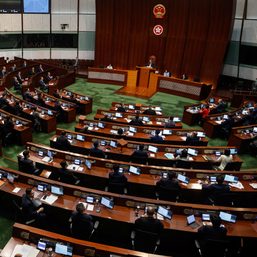
![[The Slingshot] Alden Delvo’s birthday](https://www.rappler.com/tachyon/2024/04/tl-alden-delvo-birthday.jpg?resize=257%2C257&crop=263px%2C0px%2C720px%2C720px)
![[EDITORIAL] Ang low-intensity warfare ni Marcos kung saan attack dog na ang First Lady](https://www.rappler.com/tachyon/2024/04/animated-liza-marcos-sara-duterte-feud-carousel.jpg?resize=257%2C257&crop=294px%2C0px%2C720px%2C720px)
![[Newsstand] Duterte vs Marcos: A rift impossible to bridge, a wound impossible to heal](https://www.rappler.com/tachyon/2024/04/duterte-marcos-rift-apr-20-2024.jpg?resize=257%2C257&crop=278px%2C0px%2C720px%2C720px)

![[Rappler’s Best] Patricia Evangelista](https://www.rappler.com/tachyon/2024/04/unnamed-9-1.jpg?resize=257%2C257&crop=486px%2C0px%2C1333px%2C1333px)


There are no comments yet. Add your comment to start the conversation.